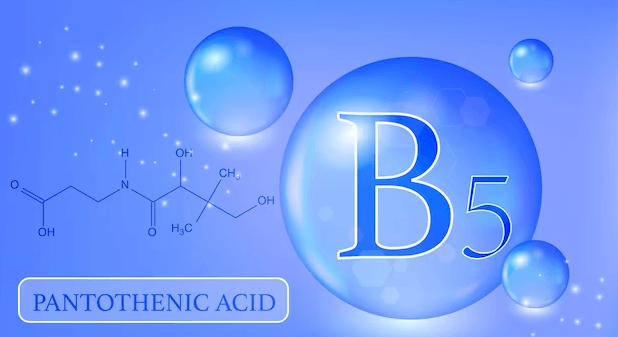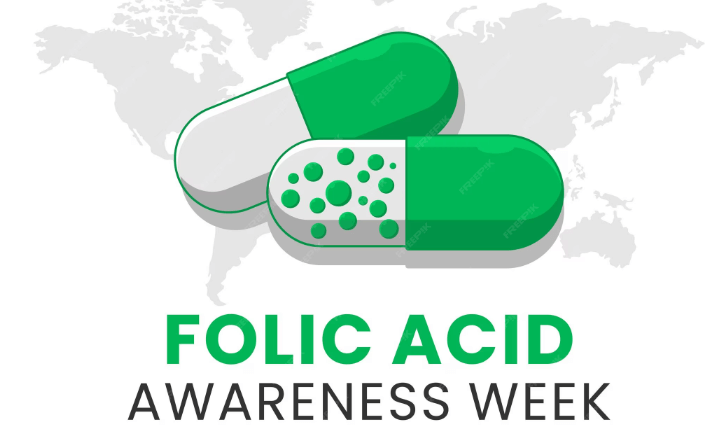B12 Breakthroughs: Unveiling the Power of Cobalamin for Energy and Health

In a constant pursuit of energy and optimal health, many people overlook the power of one essential nutrient: cobalamin, more commonly known as vitamin B12. This little-known powerhouse plays a crucial role in numerous bodily functions, including red blood cell production, DNA synthesis, and nerve function.
nbsp;
The role of vitamin B12 in energy production
Vitamin B12 is essential for the production of energy in our bodies. It plays a vital role in converting the food we eat into glucose, which is then used by our cells as fuel. Without sufficient levels of vitamin B12, our energy levels can plummet, leaving us feeling tired and fatigued. This is because B12 is necessary for the synthesis of red blood cells, which carry oxygen throughout our bodies. Without enough oxygen, our cells cannot function optimally, leading to a lack of energy.
In addition to its role in energy production, vitamin B12 also helps maintain the health of our nerve cells. It is involved in the production of myelin, a protective coating that surrounds our nerves, allowing them to transmit signals efficiently. When our nerve cells are healthy, the signals that control our muscle movement and bodily functions can be transmitted smoothly, contributing to our overall energy levels.
Vitamin B12 also aids in the metabolism of carbohydrates and fats, further supporting our energy production. By helping break down these nutrients into usable energy, B12 ensures that our bodies have the fuel they need to function at their best.
nbsp;
Signs and symptoms of vitamin B12 deficiency
Vitamin B12 deficiency is more common than many people realize, and its symptoms can be quite varied. Some of the most common signs of deficiency include fatigue, weakness, and a general lack of energy. Additionally, individuals with low levels of B12 may experience difficulty concentrating, memory problems, and even depression.
A deficiency in vitamin B12 can also manifest as neurological symptoms, such as numbness or tingling in the hands and feet, muscle weakness, and difficulty with balance and coordination. These symptoms occur because B12 is essential for maintaining the health of our nerve cells. Without sufficient levels of B12, our nerves can become damaged, leading to the neurological symptoms associated with deficiency.
It’s important to note that vitamin B12 deficiency can take years to develop, as our bodies store a certain amount of B12 in the liver. However, over time, these stores can become depleted, leading to the symptoms mentioned above. If you suspect you may be deficient in B12, it’s crucial to consult with a healthcare professional who can diagnose and treat the deficiency.
nbsp;
Sources of vitamin B12 in the diet
While cobalamin is naturally present in some animal-based foods, it can be challenging for vegetarians and vegans to obtain sufficient amounts of this essential nutrient. The primary dietary sources of vitamin B12 include meat, fish, eggs, and dairy products. Shellfish, such as clams and mussels, are particularly rich in B12, as are organ meats like liver and kidneys.
For those following a plant-based diet, there are some fortified foods available that contain vitamin B12. These include certain breakfast cereals, plant-based milk alternatives, and nutritional yeast. However, it’s essential to check the labels carefully, as not all fortified foods contain adequate levels of B12.
It’s worth noting that while some plant-based foods, such as spirulina and seaweed, are often touted as sources of B12, they actually contain analogues of the vitamin that are not bioavailable to humans. Therefore, relying solely on these foods for your B12 needs may not provide sufficient levels of the nutrient.
nbsp;
Factors that can affect vitamin B12 absorption
Even if you consume an adequate amount of vitamin B12 through your diet, certain factors can impact its absorption in your body. As we age, our bodies naturally produce less stomach acid, which is necessary for the absorption of B12 from food. This can put older adults at a higher risk of deficiency, even if they have a diet rich in B12.
Certain medical conditions, such as pernicious anemia and gastrointestinal disorders, can also interfere with the absorption of B12. Additionally, individuals who have undergone weight loss surgery or have conditions that affect the small intestine, such as Crohn’s disease, may have difficulty absorbing this essential nutrient.
To ensure optimal absorption, it’s essential to maintain a healthy gut environment. Eating a balanced diet that includes plenty of fiber-rich foods can promote a healthy gut microbiome, which plays a crucial role in B12 absorption. Additionally, avoiding excessive alcohol consumption and smoking can help maintain the integrity of the digestive system, supporting the absorption of B12.
nbsp;
The benefits of vitamin B12 for overall health
While vitamin B12 is primarily known for its role in energy production, its benefits extend far beyond that. Research has shown that maintaining adequate levels of B12 can have a positive impact on brain function, cardiovascular health, and overall well-being.
Cognitive function: Adequate levels of vitamin B12 are crucial for optimal brain function. Studies have linked B12 deficiency to cognitive decline, memory problems, and an increased risk of neurodegenerative diseases such as Alzheimer’s. By ensuring sufficient B12 intake, we can support our brain health and potentially reduce the risk of cognitive decline.
Cardiovascular health: Vitamin B12 plays a crucial role in maintaining healthy levels of homocysteine, an amino acid that, when elevated, can increase the risk of heart disease and stroke. By keeping homocysteine levels in check, B12 helps support cardiovascular health and reduces the risk of these serious conditions.
Mood and mental well-being: B12 is involved in the production of neurotransmitters such as serotonin and dopamine, which play a crucial role in regulating mood and mental well-being. Adequate levels of B12 can help prevent mood disorders such as depression and anxiety and promote overall emotional health.
nbsp;
Different forms of vitamin B12 supplements
For those who have difficulty obtaining sufficient amounts of vitamin B12 through their diet alone, supplements can be a valuable tool. There are several forms of B12 supplements available, each with its own advantages and considerations.
Methylcobalamin: Methylcobalamin is the active form of vitamin B12, meaning it does not require conversion in the body and can be readily utilized. This form is often recommended for individuals with certain genetic variations that affect B12 metabolism. Methylcobalamin is available in sublingual tablets, which are dissolved under the tongue for enhanced absorption.
Cyanocobalamin: Cyanocobalamin is the most common form of B12 found in supplements. While it is not naturally occurring in the body and requires conversion to the active forms, cyanocobalamin is stable and has a long shelf life. It is available in various oral supplement forms, including tablets, capsules, and liquid drops.
Hydroxocobalamin: Hydroxocobalamin is another form of vitamin B12 that is often used in injectable form to treat severe deficiency. It has a longer half-life in the body compared to other forms, making it an ideal choice for individuals who require less frequent dosing. Oral hydroxocobalamin supplements are also available, although less commonly.
Adenosylcobalamin: Adenosylcobalamin is another active form of B12 that is involved in energy production. This form is often used in combination with methylcobalamin in supplements targeting energy support. Adenosylcobalamin is available in tablet or capsule form.
nbsp;
Recommended daily intake of vitamin B12
The recommended daily intake of vitamin B12 varies depending on age, sex, and life stage. For adults, the recommended dietary allowance (RDA) is approximately 2.4 micrograms per day. However, it’s important to note that individual needs may vary, especially for those with specific health conditions or dietary restrictions.
Pregnant and breastfeeding women have higher B12 requirements, with the RDA being 2.6 micrograms and 2.8 micrograms, respectively.
nbsp;
How to choose the right vitamin B12 supplement
When choosing a vitamin B12 supplement, several factors should be considered to ensure you’re getting a high-quality product that meets your needs.
First, consider the form of B12 that best suits your individual requirements. If you have specific genetic variations that affect B12 metabolism, a supplement containing methylcobalamin may be beneficial. If you’re looking for a stable and widely available option, cyanocobalamin may be a suitable choice.
Next, consider the bioavailability and absorption of the supplement. Sublingual forms of B12, such as tablets or liquid drops dissolved under the tongue, can offer enhanced absorption compared to traditional oral supplements.
Lastly, look for supplements that have undergone third-party testing to ensure purity and quality. Look for certifications from reputable organizations such as NSF International or the United States Pharmacopeia (USP).
nbsp;
Conclusion: Harnessing the power of vitamin B12 for optimal energy and health
In conclusion, vitamin B12 is a vital nutrient that plays a crucial role in energy production, brain function, cardiovascular health, and overall well-being. By understanding the signs of deficiency, incorporating dietary sources of B12, and considering supplementation when necessary, we can harness the power of cobalamin to supercharge our energy levels and elevate our overall health. Remember to consult with a healthcare professional to determine your specific B12 needs and ensure you’re making informed decisions about supplementation. With the power of B12, we can unlock our full potential and enjoy a vibrant and energetic life.


























